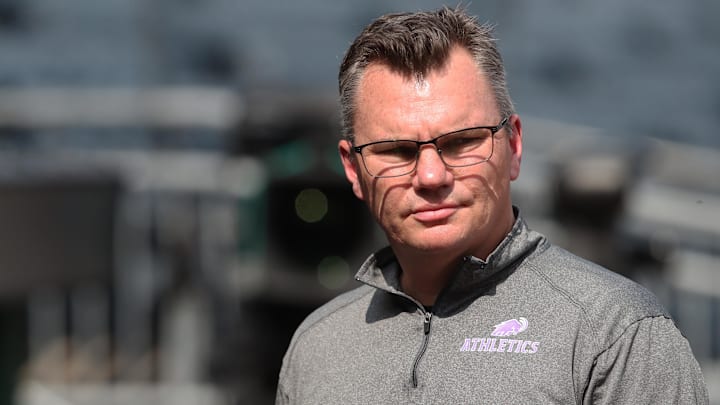Pittsburgh Pirates fans got good news and bad news when their offseason officially began on Monday.
The good, of course, was the contract extension for manager Don Kelly, who had taken over the position in an interim capacity after Derek Shelton was fired in May. The Pirates still stumbled to a 71-91 finish at the bottom of the National League Central standings, but they showed slight improvement with a 59-65 record after Kelly took over (compared to 12-26 under Shelton).
The bad news came later Monday afternoon, when general manager Ben Cherington told reporters (including Alex Stumpf of MLB.com) that he had been assured that he would return for his seventh season with the Pirates in 2026.
“We felt, at the end of the day, that making a change at general manager would set us back,” team president Travis Williams said. “That’s not what our fans expect. That’s not what we expect. We’re looking in 2026 to make the playoffs. Period. Full stop.”
Unfortunately, Cherington's return all but guarantees that the Pirates won't make the playoffs in 2026. Period. Full stop.
Ben Cherington keeping job as Pirates GM thwarts Pittsburgh's chance to become a playoff team
Cherington was brought in to modernize the Pirates’ player development pipeline, but six years later, the Major League product remains one of MLB’s weakest. Prospects acquired in trades have largely failed to become stars, leaving the big-league roster painfully thin. Instead of progress, the Pirates feel stuck in an endless rebuild cycle.
Cherington has also done little to support the Major League roster with meaningful signings. His free-agent additions over the years (José Quintana, Rich Hill, Tommy Pham and Carlos Santana, to name a few) have been cheap, one-year stopgaps, often flipped at the trade deadline. While this fits a “rebuild” model, it’s left the Pirates’ lineup and rotation hollow, with no veteran stability around young players.
Cherington talks about “building sustainably,” but has yet to show a coherent long-term plan. Instead of committing to a deep rebuild with aggressive international signings, trades, and drafts, he’s operated cautiously. This leaves the Pirates caught between being bad and pretending to compete – the worst possible place for a franchise.
Under Cherington, the Pirates’ culture of losing has persisted. Players stagnate, veterans leave and the fan base remains alienated, with no sign that any of that will change anytime soon.
Cherington hasn’t produced impact talent, roster growth or a clear path forward in Pittsburgh. He has overseen years of losing with little accountability, and his cautious, low-upside approach has left the Pirates looking almost indistinguishable (if not even worse) from when he inherited them.
